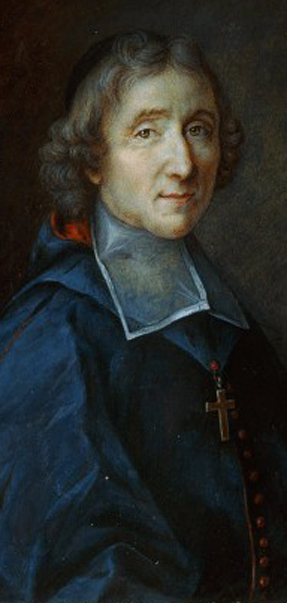Les aventures de Télémaque published in 1699 without the authorization of the author. This work tells, as the name indicates, the adventures of Telemachus, who goes in search of his father Ulysses, who experiences torments and adventures to return to Ithaca. He is accompanied by Minerva. Of course, Fenelon [1], being a man of the clergy and probably mastering Latin to perfection, uses the Roman names of the gods here, Minerva being under the name of Athena in Greek. She wants to help him, but she also wishes him to want her. Telemachus, with Mentor, is shipwrecked on the island of Calypso, who falls madly in love with him, as she fell in love with her father Odysseus. She also tries to seduce him by all means, without success. He tells Calypso, that is to say the reader, his story up to his shipwreck. This is an interesting story because it brings in additional stories and completes Homer’s work.
Of course, it is necessary to take into consideration that Fénélon is not Homer, that he proceeds with a different style and writing, in a very distant time, and the ideas automatically converge. We could almost consider, if we speak vulgarly, what we would call today a “fan-art”, which is the wish of a fan to realize his own interpretation of a work. In any case, here Fénélon creates a mixture of two epic masterpieces: the Odyssey and the Aeneid. Indeed, we find a Latin prose and narrative that is therefore close to Virgil’s account, and characters and a story closely linked to Ulysse’s journey. Moreover, Fénélon brings to his narrative elements worthy of the epic: the catabasis, from the ancient Greek καταβασις, meaning the action of descending, which defines the action of the character who descends to the underworld to speak to a loved one and ask for advice. Fénelon wrote this pedagogical novel for his pupil to introduce him to morality and politics as well as to ancient texts. The novel depicts a struggle between good and evil. Mythology provides a framework, but the situations also evoke the great figures of the Bible. It is wisdom who leads the hero and invites him to establish peace between men.

The success of this work was dazzling, translated into many languages. It is mainly, as we have said, thanks to its pedagogical character that the book spread. Indeed, as a tutor, he had to use textbooks for his pupils, and he wrote some of them, such as fables, fairy tales, but also Latin translations of La Fontaine’s fables for example. He began to write the Adventures of Telemachus in order to extend the fourth song of the Telemachia, the first three songs of the Odyssey, which focus mainly on the son of Odysseus. However, before publication, there were several problems. Indeed, Fénélon read his account orally to the Duke of Anjou[2], but at the same time it seems that he was bothered by legal problems linked to his work Explication des maximes des Saints, and was condemned. This conviction prevented him from publishing his account. The king, in order to help him, gave him the privilege to publish his book, a privilege which was cancelled. Thus, all these rumours and this desire to make Fénélon lead to the opposite movement: the desire on the part of many people to possess a copy of the text. The success was already made before the publication. What is certain is that the book was published in 1699 and was an immediate success. Several editions were published during the 18th century. It is clear that this book is the most accomplished work in the creation of a story based on the Odyssey. It can be said that Fénélon was ahead of his time. Indeed, where most literary scholars sought to translate texts or write new ones, Fénélon had the inspiration to create a work in relation to another, as can still be done today. Indeed, as soon as a work is sold in quantity, producers and writers, whether in the world of cinema or writing, scramble to write scripts and books that deal with a hero present in a story for example. Les aventures de Télémaques by Fénélon is the story par excellence linked to Homer’s Odyssey.
[1] Les Aventures de Télémaque : destins d’un best-seller, Jacques Lebrun.
[2] François de Salignac de la Mothe-Fénélon, born in 1651 and died in 1715, is a French writer and archbishop in Burgundy. He was also Louis XIV grandson.